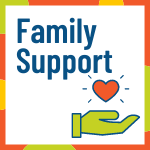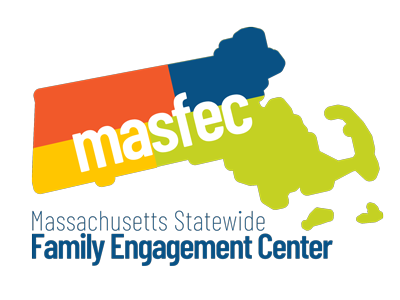 ‘Tis the season for back-to-school events hosted by every family-led group (SEPACs, ELPACs, PTOs, etc.) in your school district. If you lead “get to know our group” events at any time of the year, this idea is for you.
‘Tis the season for back-to-school events hosted by every family-led group (SEPACs, ELPACs, PTOs, etc.) in your school district. If you lead “get to know our group” events at any time of the year, this idea is for you.
It can be tempting to set up a table, lay out flyers, and when anyone asks, spend 5 minutes telling them about the incredible group that gives so much to the school community. Often, people leave the table with a flyer, but with no intention of ever coming to a meeting (never mind becoming an active member).
Let’s change things up this time! What if each parent you speak to could leave with the impression that your organization seeks out parent input, listens, meets families where they are, and is welcoming?
First, prepare a 30-second explanation of your group and how it impacts your community. Unless they ask for more, turn the conversation to focus on them, but in a way that is unexpected and can give you greater insight into what family engagement barriers your group can dissolve this year.
The 3 Questions 
- Who do you think is missing from the crowd at this event? Who isn’t here?
- What do you think we could do to make them feel welcome at our next event?
- How can we let them, and you, know about our next event?
The 3 Questions in Action
What might this conversation look like? Let’s use a fictional Special Education Parent Advisory Council (SEPAC) event, to see these questions in action.
Jiya, a SEPAC Leader leaves their table and wanders onto the playground at their “Playground Meet Up” for elementary school parents. She meets Nadia, a parent at the event.
SEPAC Leader: “Hi. I’m Jiya. Thanks for coming to our SEPAC event today.”
Nadia: “Hello. Thanks for putting this together. My daughter has been so curious about her new school.”
SEPAC Leader: “Which child is your daughter?
Nadia: points to daughter, “That’s my Rosario.”
SEPAC Leader: “Well, it looks like Rosario will love recess! What a fun playground.”
Nadia: “What is it your group does?”
SEPAC Leader: “Oooo…one of my favorite topics! I like to tell people that our SEPAC – which stands for Special Education Parent Advisory Council – is the group in town that helps families learn about special education, from their rights as their child’s advocate to understanding the paperwork and the procedures. It can be a lot for families. We’ve been there. So, we’re happy to help make it as easy as possible for other families. And our main purpose is to advise the district on programs and policies, so we gather parent opinions all year round. Essentially, we work to make our schools better for all kids, especially students with disabilities.”
Nadia: “Wow. That sounds like a lot of work.”
SEPAC Leader: “The best work. And we welcome new faces and new ideas. Speaking of faces, can I ask you a question?”
Nadia: “OK.”
SEPAC Leader: “When you look at this crowd, who do you think is missing?”
Nadia: “Well, my friend George, for one. (laughing) He was supposed to bring his daughter Isabelle today too.”
SEPAC Leader: “I’m sorry I missed the chance to meet George and Isabelle today. Is there anything we could do to make them feel welcome at the next event?”
Nadia: “He couldn’t make it because of a work conflict. 1:00 is a tough time for working parents.”
SEPAC Leader: “Good point. Thank you. We try to vary dates and times and places through the year. How can I make sure George, and you, know about our upcoming events?”
Nadia: “Do you have a calendar somewhere online?”
SEPAC Leader: “Oh, yes, on our website. (hands Nadia flyer and points to information as she shares it.) We also have a Facebook page where we share lots of great tips that help with homework and meltdowns….all sorts of things. And, here’s our calendar of events, so far. These do change during the year. We also have an email list to keep parents up to date on events. Would you like me to add you to it and you could share it with George?”
Nadia: “I think I’ll check out your Facebook page first.”
SEPAC Leader: “Great! And if you ever have any suggestions for workshops or topics you’d like us to share about on Facebook, please let me know. My name and email address are both right here (points to flyer). Thanks again for coming today! I hope to see you on DATE TIME PLACE for ______ event too.”
This conversation could play out hundreds of different ways. Instead of mentioning George, Nadia might have said, “I seem to be the only person of color here.” or “I thought we had a large number of families arrive from Afghanistan recently. How do they find out about events?”
Perhaps the parent will be excited after hearing your 30-second “elevator pitch” and tell you that they need support. Or maybe they’ll say, “Oh, I would love to help other families. We had such a hard time at first. I would love to spare other families that same learning curve.”
Whatever questions you ask, let them create connection, open doors for future conversations, and give you both the opportunity to learn and grow.








